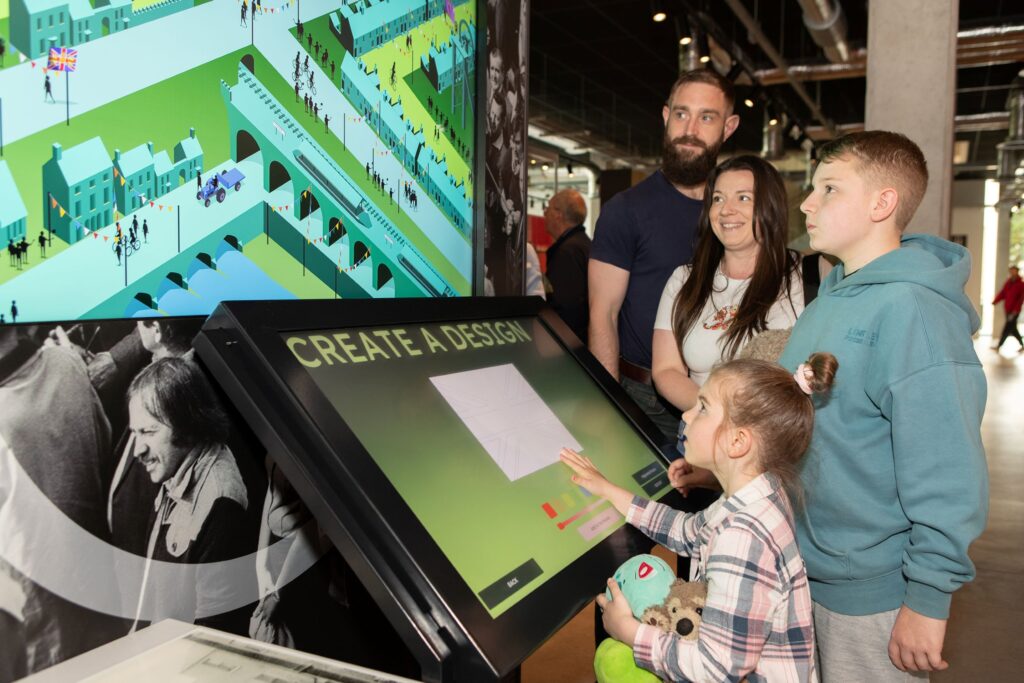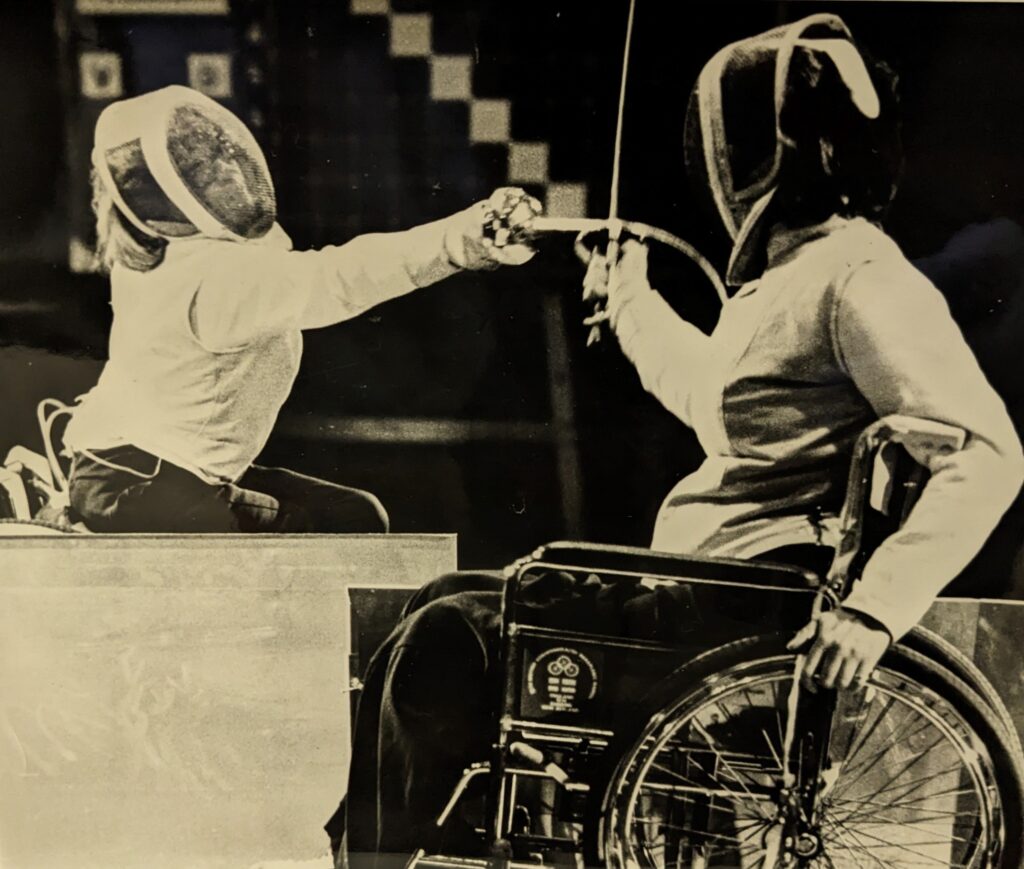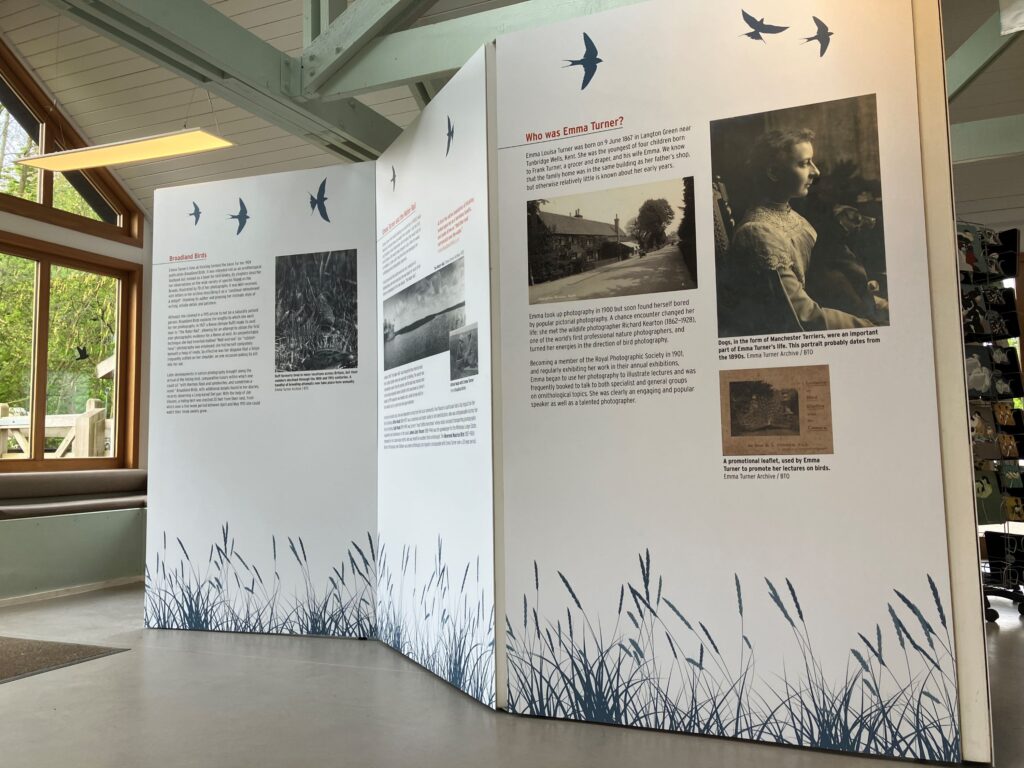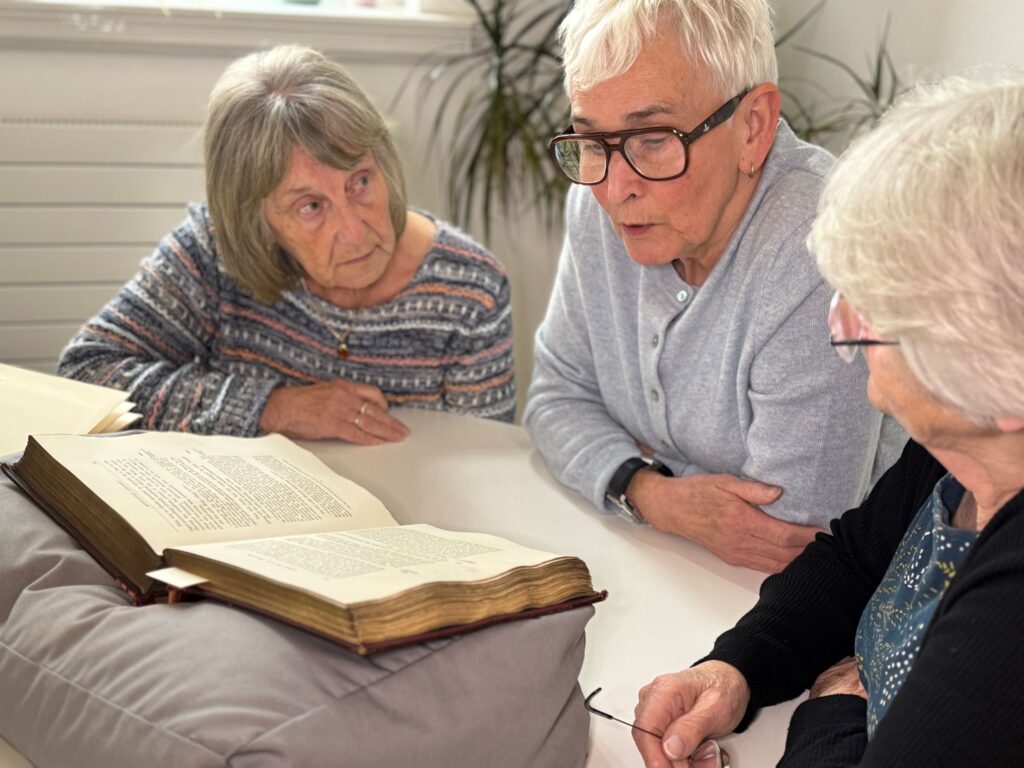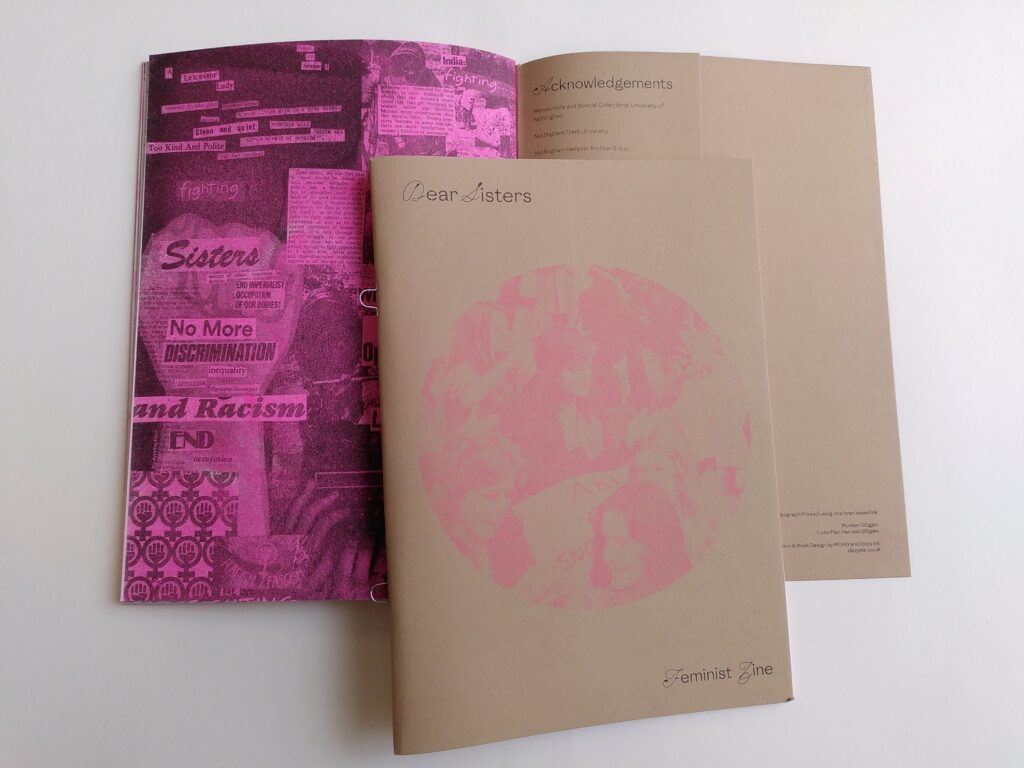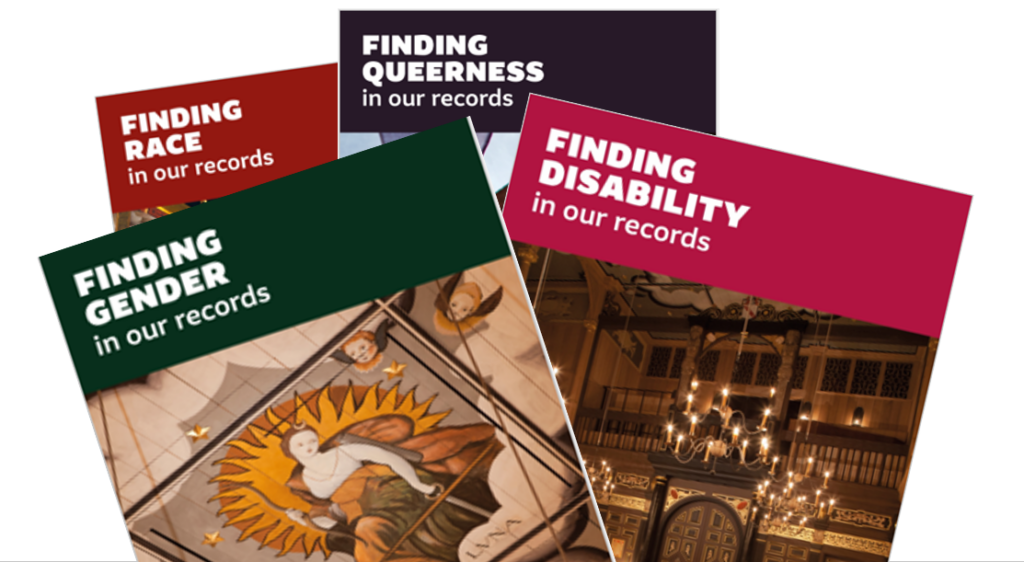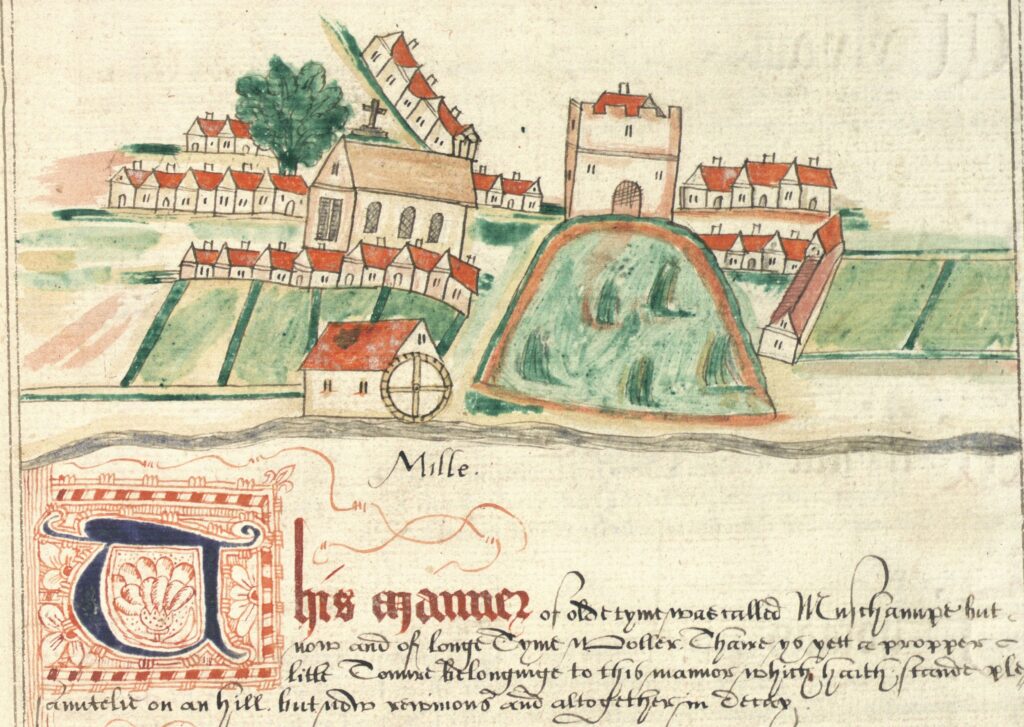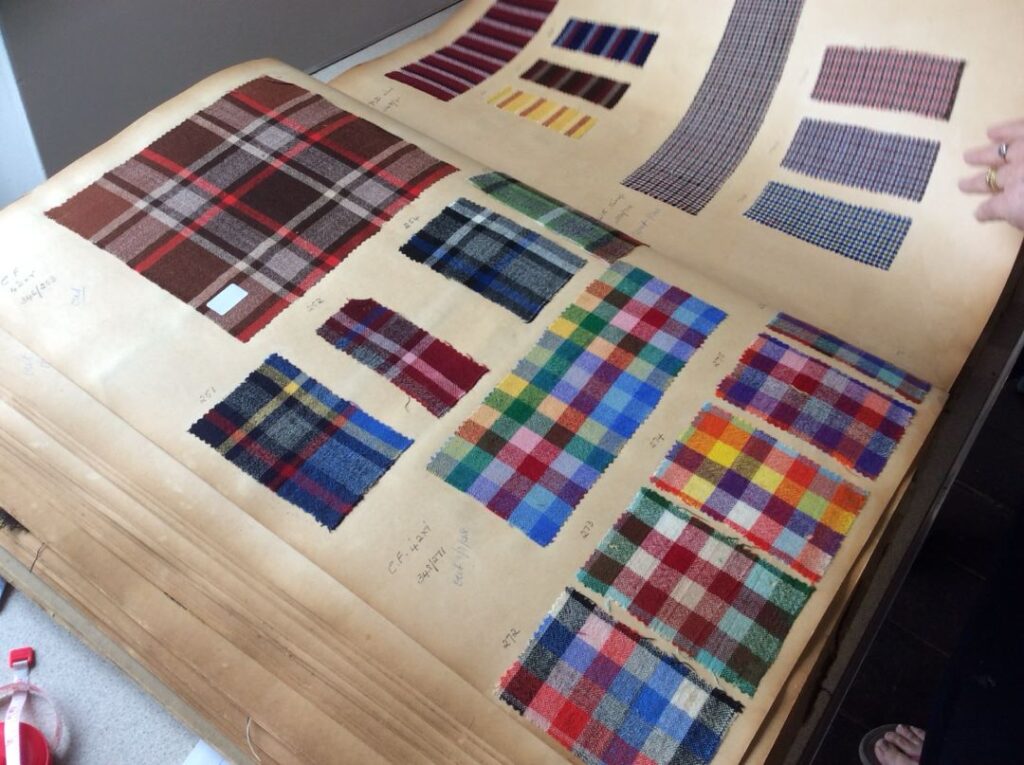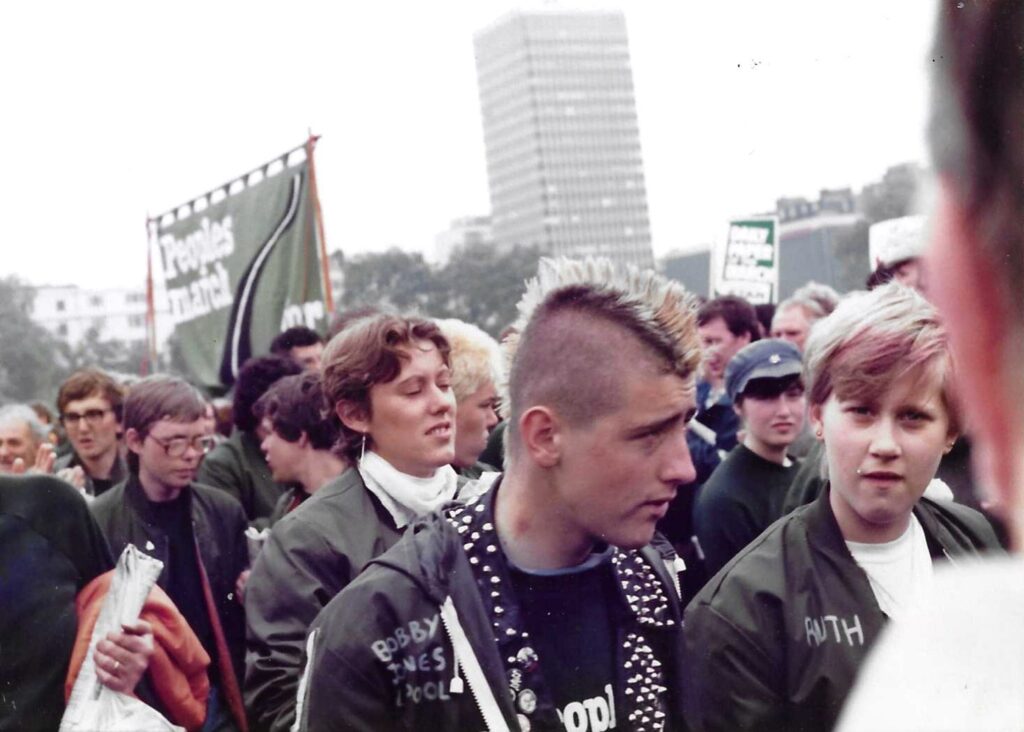Main section
Tabs Navigation
Tabs
Advocacy and Reputation
“Through a mixture of persistent advocacy and imaginative joined-up thinking, a multi-service provision was envisioned to meet the needs of the archive, the council and the communities they serve.”
Carolyn Ball, County Archivist
June 2024 marked the end of a decade-long journey for Durham County Record Office and the start of its reincarnation as The Story.
The Record Office’s six miles of collections contain 900 years of history, revealing fascinating glimpses into the lives of people throughout the county’s history. After years of advocacy, including extensive public consultations, fundraising, planning and building, the new archive service reopened as a wholly different proposition in a brand new location.
Having moved three miles from its home in the former County Hall, the archive is now situated in a redeveloped Grade II listed Georgian manor house on the city outskirts of Durham. The building includes a 21st-century extension designed on Passive House principles.
The new site at Mount Oswald provides storage for five historic collections: Archaeology, Archives, Historic Registration, Local Studies and the Durham Light Infantry Collection. These have been brought together for the first time with state-of-the-art digital access, a fully integrated collections search, a permanent exhibition, ceremony rooms, retail space and a café.
Closing the archive service to the public in January 2022 in preparation for moving was challenging, particularly following the necessary pandemic-closures. However, Durham County Record Office continued to offer expert advice, answer enquiries and deliver education programmes, online history talks and courses. The council understood that long closures and a name change came with risks, but had been addressing these through significant engagement work, online and onsite.
The Story advocates for its core services among its longstanding stakeholders, but strong press coverage has also been attracting brand new audiences to its state-of-the-art facilities and multi-use site, making The Story a reputational triumph for Durham County Council.
Visitors to The Story can undertake traditional archive research, but they can also pop in for a coffee, register a life event or attend a Registry Office wedding. Whatever their reason for visiting The Story, the archive collection is designed to be embedded in their experience, whether that’s through images in the café, items on display or archive-inspired merchandise in the retail area.
The Story’s ambition, scope and offer are larger now than they would have been if the archive had stayed as a single service in a traditional setting. There are now more opportunities for advocacy and reputation-building, and the embracing of the service by the local community has been game-changing for Durham County Council.
Digital
“This funding helped us save the Oldham Coliseum archive and ensure this significant collection is protected for future generations.”
Peter Dean, Councillor
Oldham Local Studies and Archives used a Records at Risk grant to transfer records, purchase conservation materials and catalogue their collection which included a large number of digital records.
Oldham Coliseum has been through various guises since its opening in 1887. It started life as a theatre, was transformed briefly into a music hall, became a cinema in the early 1900s and then re-opened as a theatre in 1939. The building was acquired by Oldham Council in 1977.
In late 2022, Arts Council England announced the withdrawal of its annual grant, leading the board of trustees to declare that the theatre company was no longer financially viable and would be closing in March 2023. The team at Oldham Local Studies and Archives reviewed the Coliseum’s extensive collections, the majority of which were born-digital. They then worked with Coliseum staff to merge physical archive material into the existing Coliseum Archive and transfer digital records on to an external hard drive.
With funds from a Records at Risk grant, the team employed a freelance project archivist to help manage their newly acquired collection. Timescales for moving to a new repository and search room changed so staff had to shift their focus to moving the archive into temporary storage.
The project archivist, Kate Wilson, used newly developed digital preservation workflows and procedures which were designed to be scalable so Oldham Local Studies and Archives could confidently accession collections of various sizes. Kate put together a Digital Asset Register for the Coliseum collection and ensured that it was integrated into Oldham’s archive collections. She also created catalogues with image records attached to each entry, making their contents clearer for public viewing.
During the transfer process, it became apparent that certain photograph collections of theatre productions, on the Coliseum’s hard drive, were empty. This totalled 30 productions, spanning 10 years. All staff from the Coliseum had been made redundant but a spreadsheet with credit and copyright information, including contact details, had been transferred. Thankfully, Kate contacted the photographer who still had the photos and was able to transfer them.
Due to efforts from the local community, the Coliseum has been saved from closure, and is due to reopen in its original building in 2025 after refurbishment work is completed. The work undertaken by the Oldham team and project archivist has ensured that records spanning over 20 years from the Oldham Coliseum, which would have been lost without intervention, have been saved and stored together. The funding enabled the project team to catalogue this collection, acquire new digital preservation software, and contribute to upskilling staff in digital preservation.
Diversity and Inclusion
“A huge milestone for Paralympic heritage.”
Natalia Dannenberg-Spreier, Head of Paralympic Heritage at the International Paralympic Committee
Buckinghamshire is the proud birthplace of the paralympic movement and to this day, Buckinghamshire Archives works with the National Paralympic Heritage Trust (NPHT) to make their archival collections and records relating to disability sports more accessible.
Widening access to these collections began with a Wellcome Trust funded project, Spinal2Sport, which ran between Autumn 2017 and January 2020. That project focused on the records of WheelPower, and the International Wheelchair and Amputee Sports Federation (IWAS, now World Abilitysport).
When this project ended, 463 boxes of archival material were still unlisted, so the Buckinghamshire Archive Team set out to continue the work through the creation of a collaborative, volunteer-led, cataloguing project in partnership with NPHT.
The National Archives’ New Burdens payment allowed the team to recruit a project archivist for 12 months to manage this volunteer project. To ensure the project attracted a diverse cohort of volunteers, Buckinghamshire archives used a variety of social media platforms for recruitment including a call out via the Next Door App.
To allow for a fully inclusive volunteer programme, the team offered a mix of both on-line and in-person opportunities at two venues. The success of this recruitment approach brought 30 new volunteers through the doors of Buckinghamshire Archives. This large team contributed around 3000 hours of their time to the project. At the second venue, Stoke Mandeville stadium, NPHT had 11 volunteers who contributed 2000 hours. From winter 2021 to summer 2024, a total of 41 volunteers worked on the project, with a combined contribution of 5000 volunteer hours.
The team received training in volunteer management so they could support a high number of people, including those with additional needs. New workflow procedures were created to ensure the boxes were processed in a well-managed way and accessible excel spreadsheets were created for volunteers to use.
Tasks included listing the documents of each box to item level. A standardised approach to this was essential and staff carried out quality checks of the work and addressed any issues. The project archivist also worked with the different collection levels created during the previous project, adapting and creating new ones where needed. At the end of the 12-month project archivist post, the archive staff took over management of the project.
Thanks to the work of the volunteers, project staff at Buckinghamshire Archives and NPHT, around 35,000 items are now searchable via their new portal for the first time.
Enrichment
“We’ve been delighted by the warm response to this project, and to have been able to give some much-deserved recognition to such an important figure in our shared history”.
Lesley Hindley, Archivist, British Trust for Ornithology
The British Trust for Ornithology (BTO) ran a series of outreach activities this year to raise awareness of bird photographer Emma Turner and the collections that their archive holds about her life.
Born in 1867, Emma Turner was not only pioneering in her techniques to achieve incredible photography but was also a trailblazer in the male-dominated field of ornithology. Indeed, Turner was the only woman among 11 signatories that announced the foundation of the British Trust for Ornithology in The Times in 1933.
The project’s main outreach activity was the BTO Archives’ first-ever external exhibition, following Lesley Hindley’s appointment in 2022 as the Trust’s first archivist. The BTO archive is based in Thetford, Norfolk, but an opportunity arose to work with the Norfolk Wildlife Trust (NWT) visitor centre in Hickling as this is where Turner had spent much of her life on a houseboat. Teams on both sides collaborated to create exhibition panels exploring Emma Turner’s work and stories from her life.
The exhibition ran at Hickling centre from April to May and was then displayed at the BTO headquarters in Thetford for six weeks. Around 2000 people visited the centre while the exhibition was open. During its opening weekend, BTO Archives staff hosted a display of original documents, answering questions about the archive from both bird enthusiasts and casual visitors.
The BTO and NWT tapped further into the centre’s tourist audience by adapting some of the regular boat trips around the Norfolk Broads and dedicating them to learning about Turner. On one weekend, over 50 people took the archive-inspired ‘Lady of the Reeds’ water trail to learn more about the photographer’s life.
The team was also keen to engage the local community specifically. As well as distributing flyers in the area about the exhibition, they organised a talk at Hickling Barn Community Centre by James Parry, who had written a biography of Turner. Around 70 people bought tickets for the talk and enjoyed hearing about a piece of their local history that had previously been unknown to them.
Finally, to ensure that Emma Turner’s contribution to the local area was celebrated in the long term, BTO and NWT opened a new permanent interpretation panel at the Hickling Broad visitor centre, unveiled by Turner’s great-niece.
These successful outreach experiments have inspired the BTO archive to consider taking the exhibition panels to other locations and to create new exhibitions in the future. The project expanded the BTO archive’s reach beyond its Thetford base to other parts of the county and has given many more people a fascinating insight into Emma Turner, ornithology and the Norfolk Broads.
Health and Wellbeing
“We look forward to working with more care homes across the borough of Wigan through this thriving partnership, using our vast and varied archive collections to help stimulate long term memories of people living with dementia.”
Chris Ready, Wigan Council’s portfolio holder for Communities and Neighbourhoods
In 2023, Archives: Wigan & Leigh initiated a series of Reminiscence Workshops in local care homes drawing on their archive collection which covers 800 years of history.
They hoped to use their collections to reach new audiences and improve the health and wellbeing of local people living with dementia. They also aspired to support the Council’s priority of achieving health and wellbeing impacts as part of Wigan Borough’s Leisure and Cultural Activity Strategy 2013-2023.
Thirteen one-hour long Reminiscence sessions have been run across four care homes to date, with between ten and fifteen participants attending each session. At least two care home staff are present while the Engagement Officer, Carmen Álvaro, takes participants through a series of visual, audio and physical activities with copies of archival records and loaned museum objects. Tea and cakes are also included!
Activities typically include: looking at, discussing and handling replicas of archival documents such as photographs, postcards and recipe cards; reading or listening to excerpts from oral history transcripts, books, or Wigan Archive’s Heritage Magazine; and handling of carefully selected museum or game objects. In one session, care home residents visited the archive where several displays of archival documents were spread throughout the tour, providing useful stopping points for discussion.
In 2024, the Engagement Officer worked with Wigan’s archive team to create themed Reminiscence sessions that reflected care home residents’ interests using collections from the archives. These themes included childhood, holidays, celebrations, Remembrance Day, fashion, work, and Valentine’s Day. The themed Reminiscence sessions have been well received, being highly inclusive and suitable for all residents, regardless of their levels of mobility and/or dementia.
The residents enjoy the opportunity that each session brings to interact with others through storytelling. The replica collection items and related discussions stimulate their long-term memory and boost their mood, leading to lasting positive effects. The success of these sessions, with both residents and care home staff, has led to requests for repeat visits. As a result, the Reminiscence sessions are now included as a regular feature in the service’s future engagement plans.
Impact
“The women who contributed to the archive were delighted to see documentary evidence of their activism and campaigning celebrated in the gallery and preserved in the archive for future generations to appreciate.”
Sarah Colborne, Collections Archivist
In 2018, members of the Nottingham Women’s History Group and activists involved in the 1970s Women’s Liberation Movement formed the Nottingham Feminist Archive Group (NFAG).
This community-based collective of local women collaborated with the Manuscripts and Special Collections (MSC) at the University of Nottingham to establish The Feminist Archive (East Midlands).
The partnership sought to capture the stories of second wave feminists across Nottingham and the East Midlands in a new collection that would be accessible to all in the Manuscripts reading room. The archives contain correspondence, photographs, campaign material, and the personal archives and oral histories of over 40 women. Duplicate copies of feminist magazines, held at the Nottingham Women’s Centre Library, and newsletters owned by interviewees were donated to MSC to form the Feminist Publications Collection.
To showcase these collections, MSC curated an exhibition titled ‘Dear sisters: activists’ archives’ which ran from March to September 2024 at the Weston Gallery, Lakeside Arts. MSC worked closely with NFAG to arrange the collections in a way that honoured the individual lives of the women who collected the material. They consulted NFAG members and their network of contacts in the careful production of catalogue and exhibition descriptions to ensure they addressed difficult and emotive subject matters with respect and sensitivity.
The exhibition began with a celebratory launch event, opened by the university’s first female Vice Chancellor, which reconnected a community of activists who hadn’t seen each other for decades. The exhibition featured a varied programme of curated tours, guest lectures, and talks; one focusing on the history of the ‘No More Page 3’ campaign which sparked discussions on the evolution of feminist activism. Creative highlights included zine-making workshops using blackout poetry and collage, in collaboration with Nottingham Trent University. Nadia Whittome, MP for Nottingham East, wrote the foreword for the Dear Sisters zine which is now on sale, with proceeds going to Broxtowe Women’s Project.
‘Dear sisters: activists’ archives’ attracted over 8000 visitors in total, celebrating the successful partnership between MSC and NFAG and inspiring a diverse new audience. In terms of impact, the exhibition has led to new donations, offers of material and new partnerships with local organisations, expanding both MSC’s collections and networks. The continued knowledge and support offered by the women involved has enriched the collections and spurred interest in academic research. Undergraduate students have received new professional development opportunities through two paid summer placements to work on the collections, producing posters showcasing their experiences.
MSC hope to maintain the strong relationships they have built and collaborate on future engagement opportunities to continue preserving and honouring the achievements of local feminist activists.
Innovation and Risk
“Previously there were four references to disability in the catalogue, the guide now runs to 86 pages!”
Philip Milnes-Smith, Digital Archivist, Shakespeare’s Globe
Shakespeare’s Globe Research and Collections adopted an innovative new approach to developing research resources on Shakespeare’s plays, how audiences interpret them and the creatives involved.
With funding from The National Archives’ Research and Innovation grants scheme, the Research and Collections team are developing four new research guides on finding race, disability, queerness and gender in performances of Shakespeare’s works and the plays themselves.
Plans for a display inspired by the performance of a new play at The Globe prompted the team to examine aspects of performances that had not been given prominence before now, primarily gender and queer identities. However, they quickly recognised that the existing catalogue could not support this approach, as terms such as “gender” and “queerness” had not been subject tagged. Their solution was to develop guides that explored how gender, queerness, race and disability were represented in the plays and performances.
An inclusion advisory panel of volunteers with lived experience, including participants with physical disability and neurodivergent identities, was recruited to shape development of the research guides. These were designed to improve equity, highlighting identities that have been underrepresented until now both within the Globe’s performance history and the original texts. For example, the gender guide identifies women backers, performers, creatives, composers and even fight co-ordinators.
Each guide was developed organically with subtle differences depending on the themes under discussion. The gender guide provides a complete list of all Shakespeare’s female characters – seemingly for the first time – adding information on their storyline, vocabulary and any indications of their literacy and social status. The disability guide distinguishes characters who are identified as disabled at their first appearance, who become disabled during the play, who pretend to be disabled, and less certain instances where disability can be merely inferred from the text. The guides also cross-reference between the four themes where appropriate. For example, references to The Tempest’s Caliban in the disability guide also point to the race guide.
The guides have greatly enhanced The Globe’s existing catalogue data. Previously, there were four references to disability in the catalogue but they now run to 86 pages. Enhanced subject knowledge will enable the Research and Collections team to develop their programming and reach broader audiences, all while enhancing work with existing audiences. For example, students on the MA in Shakespeare Studies, taught in partnership with King’s College London, can use the guides during their research. Most crucially, many audiences will be able to find themselves in the collections for the first time.
Many participants in the advisory panel have offered to continue working with Shakespeare’s Globe as their research offer, including the development of a new reading room, continues to evolve.
Openness
“The aim of our project has been to make these underused records accessible to all and to help people use them both creatively and for research.”
Beth Elliott, Project Archivist
Northumberland Archives applied to the National Lottery Heritage Fund (NLHF) for a project to make manorial records more accessible.
The Manorial Documents Register for Northumberland had been revised from 2014-2018 and made available online which increased awareness of manorial records locally. However, Archive staff noticed that people, who could have used these records for their local and family history research, were not doing so.
Many people weren’t aware of the records and many more felt they were too difficult a source to use. The challenge was to make these important records accessible to all, not just academics, by removing the fear of the unknown and demonstrating the range of content within them.
£73,100 was awarded from NLHF which enabled Northumberland Archives to employ a part-time project archivist, digitise a range of original manor court records to supplement existing images, and carry out associated activities. The grant was awarded in late 2019 but work began in Spring 2022 (due to pandemic delays) and will continue into early 2025.
The project has engaged 63 volunteers to date, including three student placements from Strathclyde University and people from local groups in four localities: Allendale, Berwick-upon-Tweed, Hexham and Newcastle-upon-Tyne. The volunteers have set about transcribing sample manorial documents from manors around the county. Training and support were provided to de-mystify the records and assist with palaeography. Volunteers could work on any of the locations and on documents that interested them, such as those relating to their own house or ancestors. Some of the Berwick group still meet weekly in-person, but other volunteers can work remotely from digital scans of documents which are uploaded to a Google drive.
Education sessions were held with Year 3 pupils who showed great interest in documents relating to Hexham’s market. They went on to create animations which are now available on the archives’ YouTube channel. Additionally, talks and workshops were held around the county introducing people to manorial records and the ways they can be interpreted. In total, over 4000 hours of time have been contributed to the project by volunteers.
A section of the archives’ website is now dedicated to the project, housing completed transcripts and associated images. It also includes a project description, glossary, map, FAQs, an introductory video, notes on the histories of individual manors, and a guide to the Manorial Documents Register. These resources foster a sense of openness by allowing researchers to see typical formats and contents of manorial records, and by helping users of all ages and experience learn more about these records and their use. The accompanying learning resources can be re-used in future years to encourage even more people to investigate this underused class of records.
Resilience
“This has been our first major project on archives for 20 years. It has given us the impetus to get going on an archive space integrated into the Museum.”
Peter Holdway-Bradley, Deputy Chief Executive
This year, Coldharbour Mill Museum in Devon set about conserving a unique collection of around 100 pattern books of woven wool fabric samples. The books date from the mid-19th to late-20th century and were produced by the Fox Brothers Company to show swatches of new woollen fabric designs.
The pattern books had remained untouched since the early 2000s and were rediscovered by the Museum’s Curatorial Volunteer team. Many of the books had damage to their bindings and pages, owing to their previous poor storage conditions, caused by damp and varying insect infestations. A project was kickstarted to urgently conserve this sizeable collection from the Museum’s archive. This was supported by funding from the Arts Society, The Idlewild Trust and the Remedial Conservation Programme of the Association of Independent Museums with the Pilgrim Trust.
The Curatorial Volunteer team were pivotal in developing and delivering the project as the Museum has neither an archivist nor a curator. The project began with two training sessions for the volunteers provided by a textile conservator and a paper conservator, who then supported weekly sessions to condition-check and clean the books. The volunteers were thus upskilled to recognise pests and pest damage, assess and record the condition of the collection, clean each book and make storage enclosures. Some of these were necessarily complex owing to the varying shapes and sizes of the books.
Now, with a record of the types of damage found in the books, the volunteers can prioritise any items in need of further conservation. The new skills and knowledge they have developed has enabled them to progress other conservation projects in both the Museum’s archive and object collections. They also advise on, and advocate for, improving general environmental conditions in the Museum to other teams.
Nearly all the pattern books have now been conserved, with many already on display to visitors. The volunteers are seeking additional funding to digitise the collection and improve its interpretation through digital displays. The long-term plan is for the Museum to have a dedicated archive and research space to ensure its collections are resilient to potential damage, and this project has been a vital stepping-stone in realising that ambition.
The project has helped the Museum to recognise that its archival collections are just as special as its working object collection. This progress would not have been possible without the dedication of the Curatorial Volunteer team who are part of a wider volunteer body at the Museum that received the King’s Award for Voluntary Service in July 2024.
Trust
“Archives are often not an environment that working class people feel particularly comfortable in but all the wonderful archivists we met were able to prove to our volunteers that archives were for them and about them.”
Dr Greig Campbell, Labour and Social Historian
Giz a Job was a participant-led community project documenting the 1981 People’s March for Jobs when 500 protestors marched from Merseyside to London.
The 30-day march passed through 25 towns experiencing mass redundancies and culminated in Trafalgar Square for one of the biggest political rallies in post-war history.
Giz a Job was conceived in 2022 by Dr Greig Campbell, Working Class Labour Historian, alongside Liverpool’s Vauxhall Law Centre (VLC), which offers free advice and legal representation to people experiencing social welfare issues. Together, they secured funding from The National Lottery Heritage Fund and recruited 22 volunteers through VLC’s networks, local universities and arts organisations, and callouts through the Liverpool Echo and BBC Merseyside.
The project attracted a diverse range of volunteers, many of whom came from working class backgrounds. The cohort received training in archival research and exhibition curation from The Liverpool Central Library and Archives. They also visited The People’s History Museum, The Museum of Liverpool and the Working Class Movement Library to do archive research on The People’s March.
Following training with The Oral History Society, each volunteer conducted an oral history interview with someone from the march. These were combined with existing research to produce an exhibition at Liverpool Archives that 56,000 people attended. They created a 162-page book and a digital archive including excerpts from the interviews, which were all deposited at Liverpool Archives for public access. A mural was also installed in Liverpool by local artist John Culshaw.
Facilitators empowered the volunteers to take responsibility for the project but supported any who were nervous about the oral history interviewing. The project also focused on the marginalised groups who were poorly represented within The People’s March. This included women, people with disabilities and people of the global majority. Exhibition boards were produced on each group and volunteers assigned themselves to topics they were informed in through their lived experience.
Dr Campbell had initial conversations with interviewees to build trust and introduce them to the project before they were paired with a volunteer. As a facilitator, Dr Campbell’s professional experience working on anti-unemployment projects, and his personal experience growing up in a steel town where family members lost their livelihoods, contributed to a sense that people’s stories would be represented accurately and respectfully.
The facilitators commissioned an independent evaluation of the project and the team are now using this to inform a bid for another archive research project on The Kirkby Unemployed Centre. They hope to adopt a mentoring buddy system where new volunteers will be paired with the existing cohort from Giz a Job, but both will continue to receive training.
